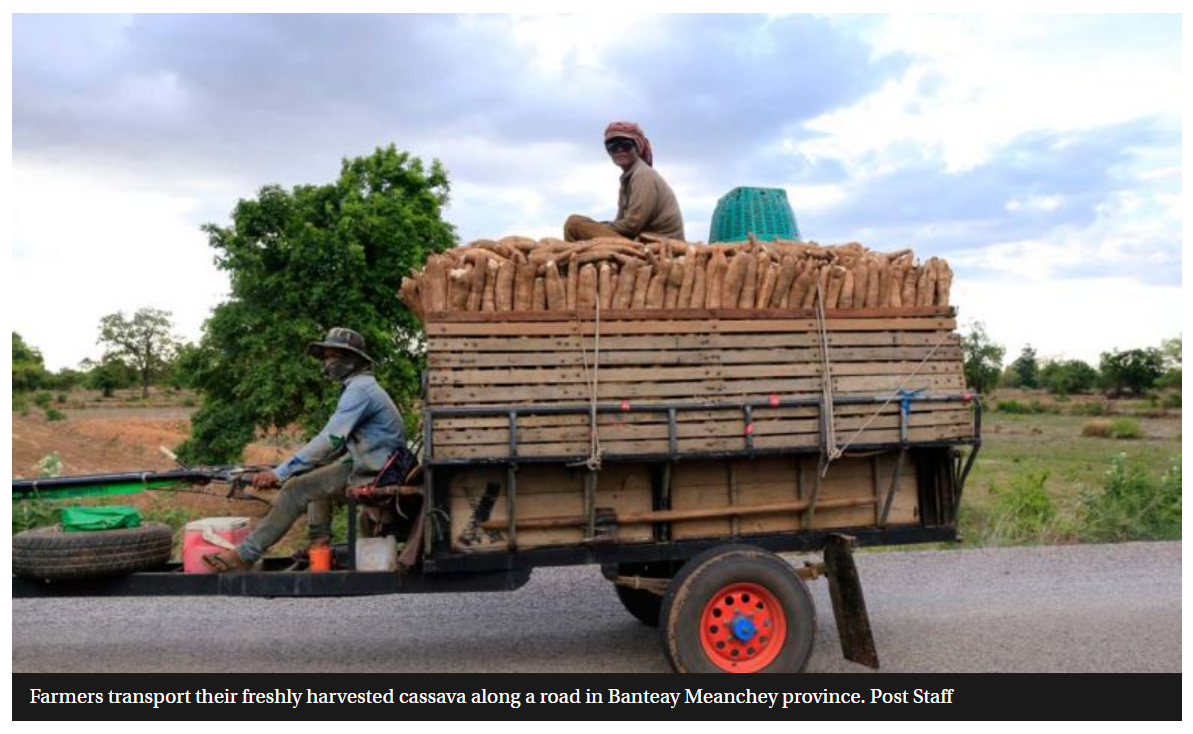Cambodia: Gov’t announces policy support for cassava industry
The Kingdom has officially launched a “National Cassava Policy” (NCP) to boost domestic production, processing and commercialisation for export to international markets in line with the government’s Industrial Development Policy for 2015-2025.
The NCP is a joint effort by the Ministry of Commerce, Ministry of Agriculture, Forestry and Fisheries and the UN Development Programme (UNDP).
The government approved creation of the new policy on August 14 last year, and it was inaugurated in a ceremony on January 14 at the commerce ministry.
The launch of the policy was described as marking the beginning of a new journey in Cambodia’s agribusiness development towards inclusive growth, poverty reduction and realisation of the government’s development goals.
Agriculture ministry secretary of state Mam Amnot said during the launch that with national production having exceeded 12 million tonnes annually for several years, cassava is an industrial crop which offers the potential to improve farmers’ livelihoods and bolster exports.
“Based on the vision presented in the cassava policy, the agriculture ministry will work with related stakeholders to address challenges facing the sector in accordance with our Agriculture Sector Strategic Development Plan 2019-2023 framework,” he said.
UNDP resident representative Nick Beresford said at the ceremony that cassava represents a good opportunity for Cambodia, especially if the nation can develop value chains to export processed products such as starch.
“This requires a solid contractual relationship between processors and farmers growing cassava to create consistent and high-quality supply,” he said.
Commerce minister Pan Sorasak presided over the launch, noting that cassava is one of Cambodia’s primary agro-industrial crops and a major export product, contributing three to four per cent of gross domestic product. Each year, the cassava sector receives about $300 million in investment.
Sorasak said: “This policy aims to position Cambodia to be a home of cassava processing industries and a reliable supplier of cassava-based products for global markets.
“To achieve this goal, this policy defines three main objectives – first, to transform from subsistence to commercial cassava production, where the profitability of farmers is enhanced, generating incomes in the contexts of price volatility, sustainable land use and climate-smart agriculture,” he said.
“Second, to support active processors and attract investment to produce value-added cassava-based products to supply diverse markets.
“And third, to enhance trade competitiveness by turning from market access to market presence, improving trade facilitation and reducing trade-related costs,” he said.
In 2018, the Kingdom produced 13,750,076 tonnes of cassava – down slightly from 13,817,262 tonnes in 2017 despite cultivation increasing six per cent year-on-year from 612,861ha to 650,310ha, agriculture ministry data show.
Exports of dried cassava and flour in 2019 amounted to 3.29 million tonnes, worth more than $26.4 million and up 27 per cent from 2018’s 2.59 million tonnes, according to the report.
Combined exports of fresh and dried cassava in 2019 exceeded 6.93 million tonnes, which Sorasak estimated to be worth more than $1.9 billion. Estimates for last year indicate that combined exports topped seven million tonnes.
The UNDP reported that a public investment package of nearly $296 million is needed for the development of the nation’s cassava sector, citing a lack of focus on domestic processing.
The report said Cambodia’s main cassava export destinations are Thailand, Vietnam, China, the Netherlands, Czech Republic, Canada, Italy, India and Pakistan.
Source: https://www.phnompenhpost.com/business/govt-announces-policy-support-cassava-industry


 English
English




